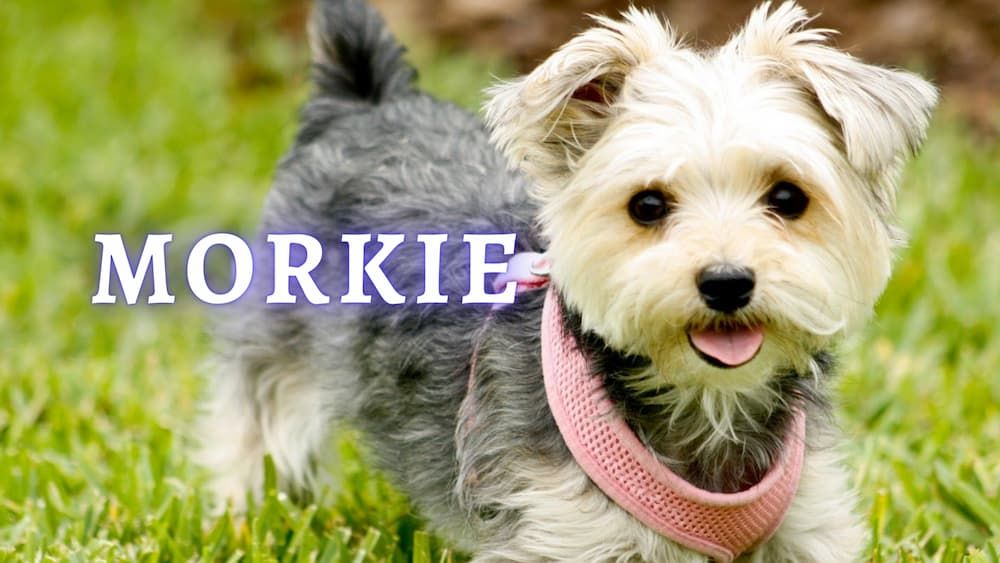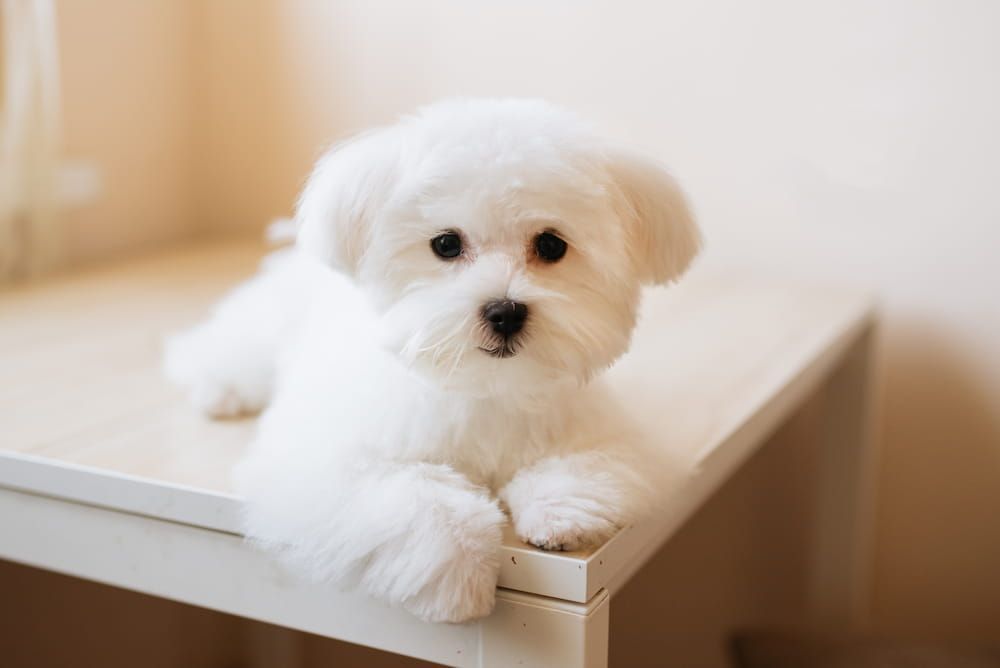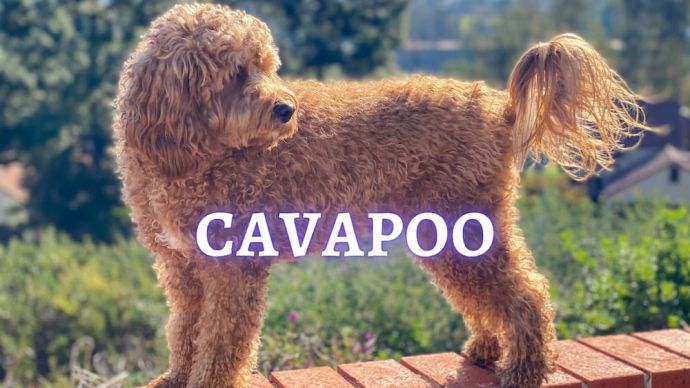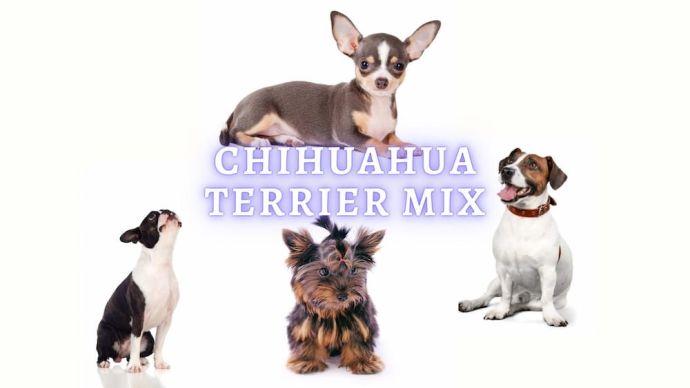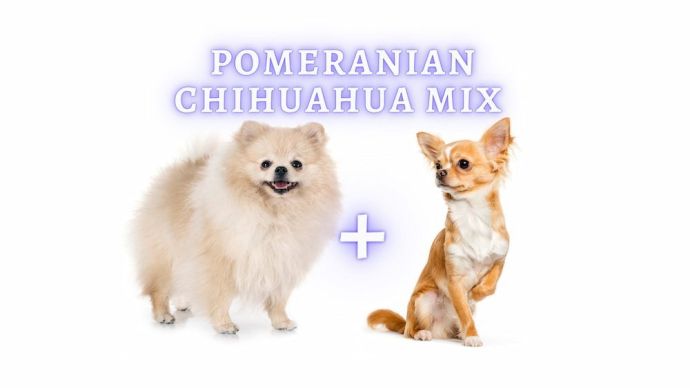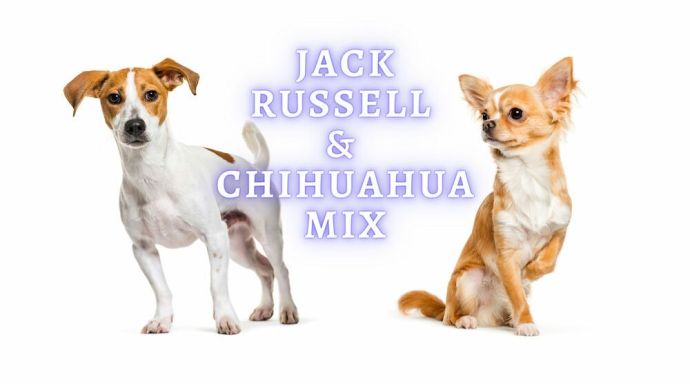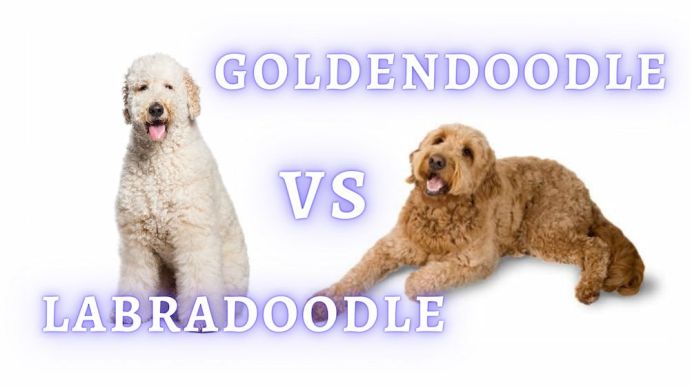Morkie Dog Breed Profile: Maltese and Yorkshire Terrier Mix Personality, Activity Level and Care
Written by:
Author: Marissa Prizio
Marissa Prizio attended the University of New Hampshire and earned a bachelor's degree in biomedical Animal Science. Marissa has always enjoyed writing; she was even mixing literature classes into her science major in college. During her writing career, she has edited eBooks, written for a variety of websites, and created audio-visual courses for sustainability.
View all 36 articlesLearn about our editorial process and veterinary review board.
Viewed: 1445
Updated on: 03/23/2022
If you are looking for an adorable ball of silky fur, energy, and affection, then a Morkie may be your perfect companion. This pint-sized pup is a mixture of the popular breeds Maltese and Yorkshire terrier. Their combination highlights the best of both breeds, and while the American Kennel Club does not recognize them, Morkies are nationally recognized by both the International Designer Canine Registry and the American Canine Hybrid Club. Here’s everything you need to know about the mini yet mighty Morkie, also known as the Morkshire terrier. [1]
Characteristics
| Weight | 4 to 8 pounds |
| Height | 6 to 8 inches |
| Colors | White, Tan, and Black |
| Patterns | Solid colors and mixed color patterns |
| Lifespan Expectancy | 10 to 13 years |
| Suitable For | A single owner, older couples, mature children, and smaller living spaces. |
Breed History
Many dog breeds have a long and well-planned history, but that is not the case with Morkies. Unlike the decisive breeding of designer breeds like Golden Doodles, Morkies were thought to have originated as an accident. Since both purebred dogs are very close in size, either can be the mother or father, and no human intervention is needed to generate a healthy litter.
Even though there is a good chance that these mixed breed dogs have accidentally been around for longer than we know, public interest in the breed began to grow during the 1990s designer dog trend. [1] Since this point, Morkies have been intentionally and regularly produced as a designer breed. Their popularity may not rival that of designer Poodle mixes, but growing public awareness of the Morkie’s attributes may change that.
All of the Morkie’s loveable attributes come from their parent breeds, the Yorkie and the Maltese. Both of these breeds have rich histories that give some insight into the origins of their modern mix.
The Yorkshire Terrier’s history begins back in the mid-1800s. Not surprisingly, its origins are located in the English counties of Yorkshire and Lancashire, the prior of which is responsible for the breed’s name. Its genetic lineage is linked to a variety of small working terriers, and some sources even suggest that Maltese played a part in the breed’s early origins. Their energetic, bold, and tough personality, combined with their tiny size made them ideal rodent hunters. Once the breed gained popularity for their visibly silky and glossy coat, they became more of a luxury lap dog and were bred to retain more companion characteristics, like loyalty and a desire for human affection. [2]
The Maltese has origins that extend deep into human history, with some historians believing that the breed has existed since 3500 B.C. This breed was praised for its seemingly perfect petite proportions, and its origins are rooted in Malta. Its silky white fur, loyalty, and affectionate nature earned it the title of a “Roman Ladies’ Dog,” which was a position it held until the fall of Rome. After which, Maltese were taken in a refined by Chinese breeders and eventually introduced to Europe as the toy breed we all know and love today. [3]
Both the Maltese and Yorkie have rich histories, so it is no wonder why Morkies’ looks are so refined and their personalities so charming.
READ MORE: Puppy Care for New Owners
Interesting Morkie Facts
While Yorkies and Maltese have breed standards, they both express some variety that can influence the appearance of their mixed Morkie offspring. The Maltese’s carefully managed lineage has resulted in pure breeds that are entirely white in color with long silky hair. While they can show some tan or yellowing on the ear fur, it is generally bred against. This standard appearance and teddy bear face lend to some pretty predictable genetics, but Yorkshire terriers lend their Morkie offspring much more variety.
Yorkshire terriers have a variety of color patterns, with a majority of recognized patterns consisting of a darker saddle coloring, like black or silver, paired with a lighter face and body, like tan or blond. Black and tan is the most common color combination. There is also a variation of coloring recognized as Parti, which contains gold, tan, a white body, and some black patches. There is also Biewer coloring which mimics standard Yorkshire terrier coloring with the addition of random white patches. [4] Suppose these color variations are present in a Yorkshire terrier breeding for Morkies. In that case, it can result in some really interesting color patterns that fall outside of the norm for both parent breeds.
Unpredictable color patterns are especially common in a first-generation Morkie puppy, as there is no guarantee that every inherited trait will be an equal combination of both parents. In the same litter of first-generation Morkies, there could be one of each color pattern, and some could appear very much like Yorkies while others almost look like a full Maltese. Second-generation Morkies are still prone to variation, but their attributes are more likely to appear mixed. Such a pattern continues if more Morkies are bred from Morkies, eventually leading to less variation in Yorkshire terrier and Maltese traits.
It is also worth noting that Yorkshire terriers do come in a teacup size. A teacup Yorkshire terrier is generally considered an individual less than six inches and under four pounds. [5] Some are bred to be this size, while others just end up being smaller. This size variation does make it possible for a miniature Yorkshire terrier parent to sire a litter of tiny Morkies, creating a miniature Maltese Yorkie mix. Teacup Morkies are, for the most part, an even smaller version of a regular Morkie, and they retain many of the same attributes. It is important to keep in mind that teacup breeds can come with more health concerns, especially if they are not raised by reputable breeders.
Temperament & Personality
Morkies personalities tend to be packed with tenacity and energy. Their terrier lineage creates a great sense of fearlessness in a rather tiny package. They are not afraid to bark up a storm and stand their ground if they feel that something is off, making them a great alarm dog. That terrier tenacity also comes with a lot of condensed energy. Don’t be surprised if your
Morkie never seems to get tired during the day unless they are offered a comfortable spot on your lap.
Both the Maltese and Yorkies have a lap dogs lineage that has been passed on to their offspring. This desire for affection generates a strong sense of loyalty and companionship in these little dogs. Much like their ancestors, Morkies have a tendency to choose “their person” in each household and become strongly bonded with that individual. They will likely want to be everywhere their person is and are generally not opposed to being carried or held by their favorite people.
When Morkies are not snuggling with their favorite person, they tend to be burning off their excess energy and enjoying some play-time. Their playful nature makes them fun companions that will keep you on your toes. While they can match the energy level of young children and larger dogs, it is best to supervise their play with larger companions as their small frames make them prone to injuries from minor playtime accidents. [1]
| Adaptability | 3 out of 5 |
| Adapts To Apartment Living | 4 out of 5 |
| Energy Level | 4 out of 5 |
| Adapts To Being Alone | 1 out of 5 |
| Tolerates Cold Weather | 2 out of 5 |
| Tolerates Hot Weather | 3 out of 5 |
| All-Around Friendliness | 3 out of 5 |
| Affectionate With Family | 4 out of 5 |
| Kid-Friendly | 3 out of 5 |
| Dog Friendly | 2 out of 5 |
| Cat Friendly | 2 out of 5 |
| Friendly With Strangers | 3 out of 5 |
| Health & Grooming | 4 out of 5 |
| Shedding | 2 out of 5 |
| Drooling | 2 out of 5 |
| Easy To Groom | 3 out of 5 |
READ MORE: How to Train a Puppy to Walk on a Leash?
Activity
Morkies may enjoy a good cuddle, but they can not do without some playtime. Fetch, chase, and space to run around are all great ways for your Morkie to get its recommended minimum of 30 minutes of exercise every day. Many Morkies, especially young ones, will likely be able to play for longer than this, but a minimum of 30 minutes will help keep their body healthy and their mind calm.
Since Morkies are small breeds, they can generally meet their exercise requirements in smaller spaces, like apartments. However, their bold nature also leads to some serious barking. If you are looking to keep your Morkie calm and quieter, then treat puzzles and brain teasers that trigger their intelligent terrier hunting instincts are always a great option.
Training
The Morkie’s dependant and affectionate nature seemingly does not apply when it comes to training. Like most toy breeds and terriers, the Morkie is a rather independent breed that prefers to make its own choices. [6] Their stubborn nature does not make them the best for learning tricks and obedience training, but that does not mean they are incapable of these skills. Experienced and patient dog owners are best equipped to train a Morkie, but their small size makes it easy for inexperienced dog owners to simply lift them up instead of using commands.
Social skills can be trained into a Morkie at an early age to help them develop a more friendly personality. This type of training requires a good amount of exposure to other dogs and people. It is highly recommended early socialization and even the help of professional dog trainers if needed. This way, your Morkie naturally develops a friendly personality to contrast its sometimes stand-offish terrier traits. [1]
Morkie training also includes practicing independence. Since these little dogs are predisposed to be attached to certain people, they can easily obtain a sense of separation anxiety. Separation anxiety is a stressful condition for your pet and you since it often results in anxiety-driven barking and destructive behavior. Luckily, this training can be easy if it is started from a young age, and with practice, Morkies should be able to stay home alone for a few hours.
Adoption & Rescue
Since Morkies are considered designer dogs, most people believe they need to purchase one from a breeder. While there are reputable Morkie breeders, they generally come at a serious cost. Like most desirable mixed breed dogs, Morkie puppies commonly sell for hundreds of dollars or more. Pet shops may seem like a cheaper option, but they come at the cost of possibly supporting a puppy mill and dealing with undisclosed health complications.
It is completely possible to adopt a Morkie from a shelter or from Morkie rescues. While this breed is notable to those interested in its unique attributes, to some people, Morkies simply appear as another small dog, so they sometimes end up in shelters. When their silky hair is unkempt or cut too short, they may not closely resemble the Morkie standard, so it is important to do your research and keep an eye out for that teddy bear face and tenaciously loyal personality.
Another perk of rescue dogs worth noting is the likelihood that rescued Morkies will already have their basic medical needs, including vaccines and fixing, done prior to your adoption. This effort offers you a wonderful discount on a designer breed.
RELATED: How to Adopt a Retired Military Dog?
Is A Morkie Right For You?
If you are looking for an adorable canine companion on the smaller side, a Morkie is worth considering, but how do you know if this is the perfect pup for your lifestyle? Morkies are generally considered to be the best fit for single individuals, but they also make great family pets for families with older children or older couples. These family dynamics can include other pets as long as they are introduced young and interact well.
Since Morkies are small breed dogs, they can make great pets for tighter housing, and they can be suitable for apartment living. It should be considered that this dog breed is known to bark quite regularly, especially if they are left alone, so apartments with thin walls may not be the best fit.
FAQ
Is A Morkie A Good Dog?
Morkies are excellent dogs, and like most breeds, their personal qualities are rather dependent on their care. The qualities of loyalty, tenacity, and affection are always present, but they are best bought out by owners who are ready to devote plenty of time and patience. With the right training and care, you can become one of the many happy Morkie owners!
What Health Problems Do Morkies Have?
Morkies are generally healthy dogs with few health issues. The complications they do experience are quite common to most small dogs. These include luxating patella (sliding kneecaps that cause a hitching leg when they move) and reverse sneezing (a disturbing sound created by a mildly collapsed trachea). [1] Both of these conditions are of little concern and rarely require surgery. Their silky fur and large eyes also make them prone to tear staining and some eye issues, but these are uncommon in younger dogs. [6]
The best way to minimize the chances of your Morkie having health complications is to make sure you are feeding them high-quality dry kibble dog food and providing regular exercise. If you are purchasing your Morkie from reputable breeders, make sure to check the parent’s lineage for genetic health issues.Are Morkies Hypoallergenic?
For those worried about cleaning up dog hair from their Morkie who will want to rest everywhere they rest, we have some good news. These tiny dogs have a coat of hair instead of fur, something they have inherited from both of their parents. While Yorkshire terriers and Maltese are considered hypoallergenic, Morkies can not be fully classified as such since they are a mixed breed. [1] However, they are very likely to be less allergy-inducing than other toy dogs with fur.
READ MORE: Best Food for Small Breed Puppies
Article Sources:
- “Morkie Dog Breed: Information & Personality Traits.” Hill’s Pet Nutrition, 11 Feb. 2021, hillspet.com/dog-care/dog-breeds/morkie.
- “Yorkshire Terrier (Yorkie) Dog Breed Information.” American Kennel Club, 13 July 2021, akc.org/dog-breeds/yorkshire-terrier/.
- “Maltese Dog Breed Information.” American Kennel Club, 13 July 2021, akc.org/dog-breeds/maltese/.
- Jacobs, Mayang. “7 Types of Adorable Yorkie Puppies.” Teacup Dog Daily, 14 Nov. 2020, teacupdogdaily.com/yorkies-puppy-list/.
- Myers, Kevin. “Teacup Yorkie – Everything You Could Want to Know!” Dog Lover’s Digest, 4 Jan. 2021, dogloversdigest.com/teacup-yorkie/.
- “Morkie Dog Breed Health, Training, Feeding, Puppies and Temperament.” PetGuide, 28 Nov. 2019, petguide.com/breeds/dog/morkie/.
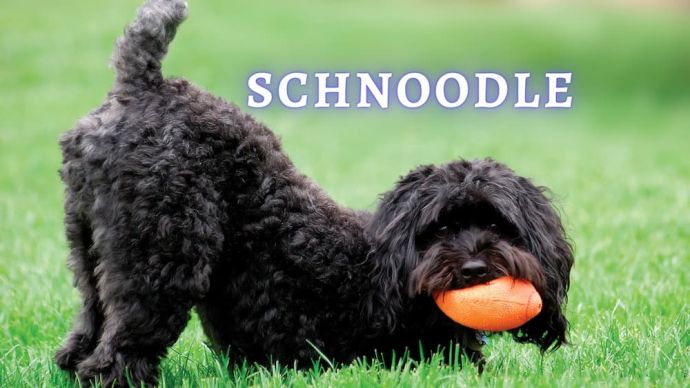 Dog Breeds Schnoodle: Personality, Temperament, and Everything Else You Should Know
Dog Breeds Schnoodle: Personality, Temperament, and Everything Else You Should Know - 1202
- 3
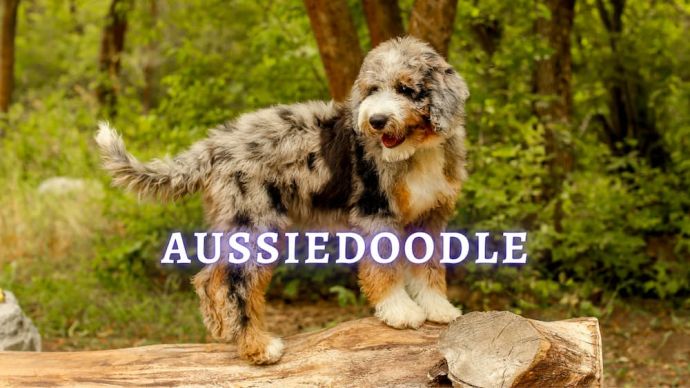 Dog Breeds Aussiedoodle: Breed Info, Personality, Activity Level and Life Span
Dog Breeds Aussiedoodle: Breed Info, Personality, Activity Level and Life Span - 1282
- 0
 Dog Veterinary Tips Why is my Dog throwing up: Causes and Preventing (Veterinary Advice)
Dog Veterinary Tips Why is my Dog throwing up: Causes and Preventing (Veterinary Advice) - 23424
- 5
 Dog Care Why Is My Dog Bleeding From Its Butt? Causes and treatment of rectal bleeding in the dog
Dog Care Why Is My Dog Bleeding From Its Butt? Causes and treatment of rectal bleeding in the dog - 22076
- 0
 Dog Care My Dog Keeps Scratching His Mouth: Reasons Why Your Dog Scratching Face
Dog Care My Dog Keeps Scratching His Mouth: Reasons Why Your Dog Scratching Face - 17561
- 1









